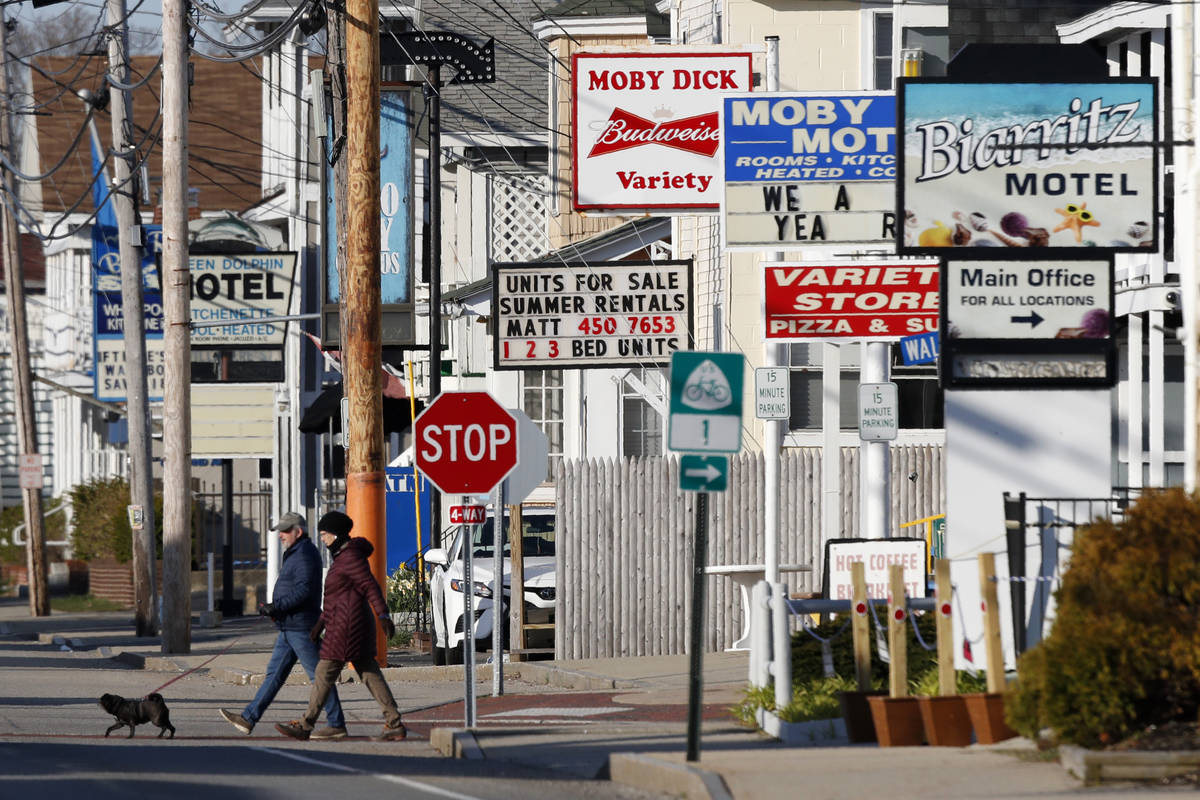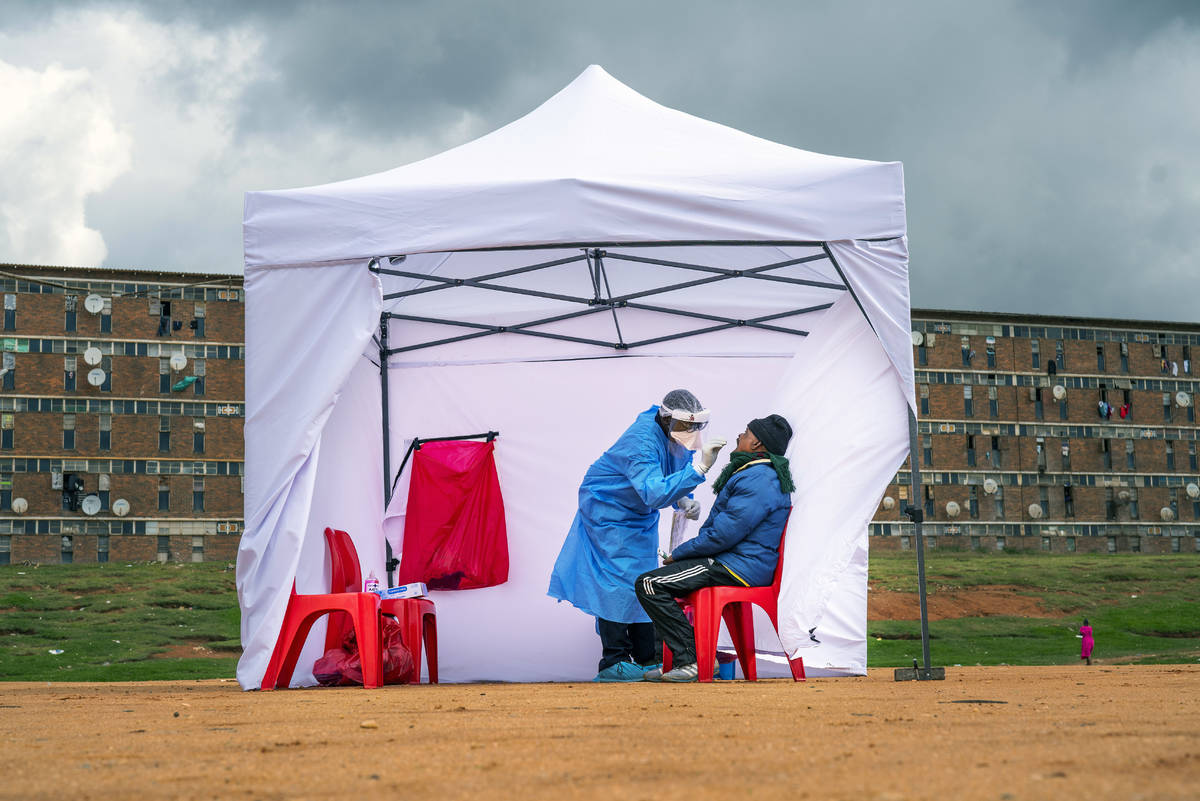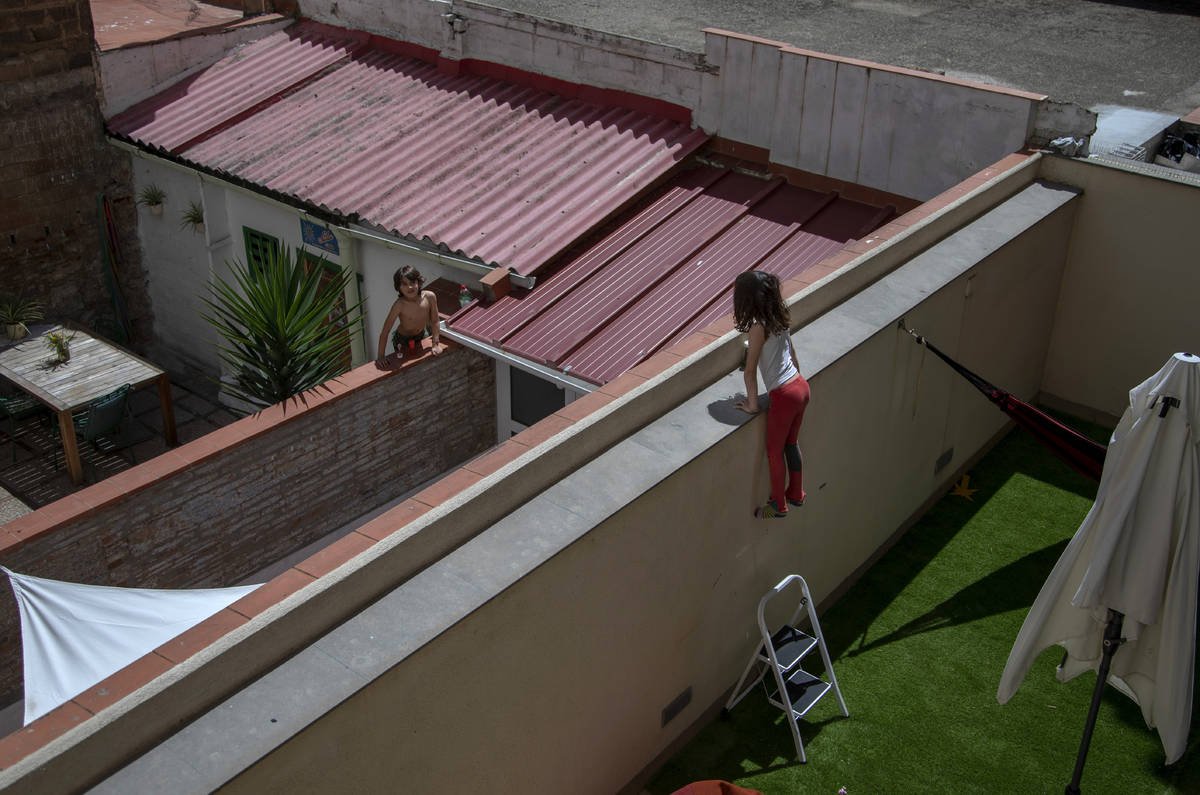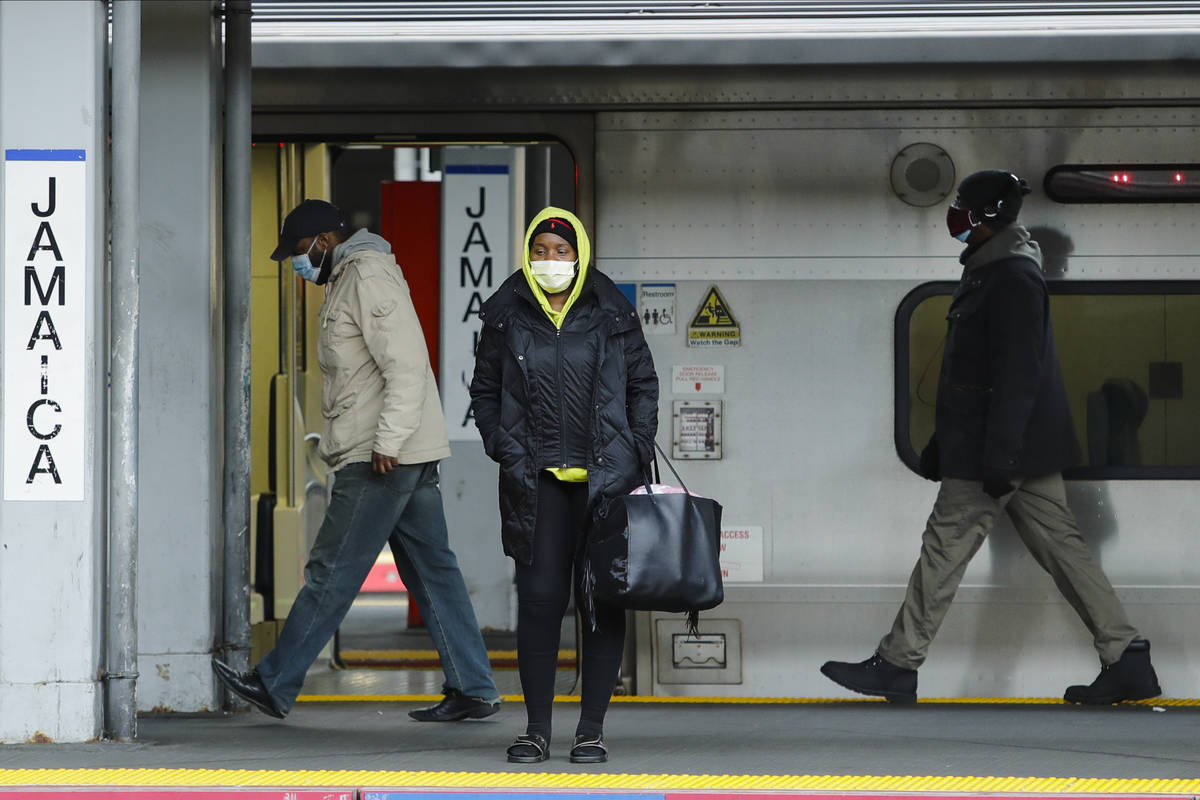Virus torches world economies; glimmer of treatment hope
The coronavirus is sending the U.S. economy into the biggest and fastest collapse since the Great Depression, with economic output reported shrinking at an alarming rate Wednesday and the number of Americans thrown out of work estimated at nearly 30 million.
Scientists, meanwhile, announced that an experimental drug has proved effective against the virus that has killed close to 220,000 people worldwide, reducing the time it takes for patients to recover. Stocks rallied on news of the first treatment shown to work in a major government study.
Confirmed infections globally reached more than 3.1 million, including 1 million cases and almost 60,000 deaths in the U.S., according to a tally by Johns Hopkins University. The true toll is believed to be much higher because of limited testing, differences in counting the dead and concealment by some governments.
GDP plummets 4.8%
Amid the lockdowns that have closed factories and businesses from coast to coast, the U.S. said that its gross domestic product, or output of goods and services, shrank at an annual rate of 4.8% in the January-March period, the sharpest quarterly drop since the global meltdown of more than a decade ago.
This can embed in every CV story and is the preferable video embed.
And the worst is yet to come: The Congressional Budget Office has estimated that the GDP of the world’s biggest economy will plunge at a 40% annual rate during the three-month period that ends in June.
The latest figures on people applying for unemployment benefits in the U.S. are set to be released Thursday, with economists estimating perhaps 1 in 6 American workers have lost their jobs over the past six weeks.
The U.S. unemployment rate for April will come out at the end of next week, and economists have forecast that it could range as high as 20% — a level not seen since the Depression.
Many economists are skeptical the U.S. economy will bounce back quickly later in the year, noting that the virus could flare up again or consumers and employees might be too worried to return to business as usual.
“The virus has done a lot of damage to the economy, and there is just so much uncertainty now,” said Mark Zandi, chief economist at Moody’s Analytics.
Worldwide damage
Damage is piling up elsewhere around the world.
Globally, the United Nations’ main labor body raised its prediction of full-time-equivalent job losses in the second quarter to an estimated 305 million.
It also projected that 1.6 billion workers in the “informal economy,” including those working without proper contracts or oversight by government regulation, “stand in immediate danger of having their livelihoods destroyed.” That is nearly half the global workforce of 3.3 billion people.
In Europe, almost every measure of the economy is in free-fall. Figures due to be released Thursday are expected to show a drop of about 4% in the first three months of the year in the eurozone, and an even steeper hit is projected this quarter. Unemployment is expected to rise to about 8% in March.
The figure would be worse if not for massive amounts of government support to keep millions of workers on payrolls. Government debts are exploding to cover the costs of such relief.
“The lockdowns to contain the COVID-19 pandemic are taking an unprecedented toll on the European economy,” said Florian Hense, an economist at Berenberg Bank.
Troubles in Europe
In Paris, aircraft maker Airbus reported a first-quarter loss of 481 million euros ($515 million), laid off t housands of workers and sought billions in loans to pull through the crisis.
Italy’s credit rating was lowered in the first downgrade of a major economy as a result of the crisis. Its rating stands just one level above junk bond status. Italy expects its economy to shrink by 8% this year.
Germany’s economy minister said the government is projecting a contraction of about 11% in GDP by the end of the quarter. But he also predicted a sharp recovery in 2021.
Meanwhile, biotech company Gilead Sciences and the U.S. government reported that the drug remdesivir shortened the time it takes for OVID-19 patients to recover by four days on average. Also, a trend toward fewer deaths was seen among those on the drug, said Dr. Anthony Fauci of the National Institutes of Health, the government’s top infectious-disease expert.
The study was run by NIH and tested remdesivir versus usual care in 1,063 hospitalized coronavirus patients around the world. Fauci said patients on the drug took 11 days on average to recover, versus 15 days for the others.
“What it has proven is that a drug can block this virus,” Fauci said. “This will be the standard of care.”
Still, many health experts believe the key to ending the crisis will be a vaccine, and developing one could take a year or more.
UK deaths top 26K
In other developments, British raised its death toll to more than 26,000 after adding more than 3,800 nursing home deaths that were previously not included.
With the crisis easing in places like Italy, France and Spain, European governments are turning their attention to rethinking public transportation to get their economies up and running again without setting off a second wave of infections.
Solutions include putting red stickers on the floor to tell bus passengers in Milan how far apart to stand. The Dutch are putting on longer, roomier trains. Berlin and many other cities are opening up more lanes to bicyclists. And in Britain, bus passengers are using the middle or rear doors to reduce the risk to the driver.
In China, where the virus first emerged late last year, the government announced that its ceremonial parliament will be held late next month after its original meeting was postponed. The session will involve 3,000 members.





















